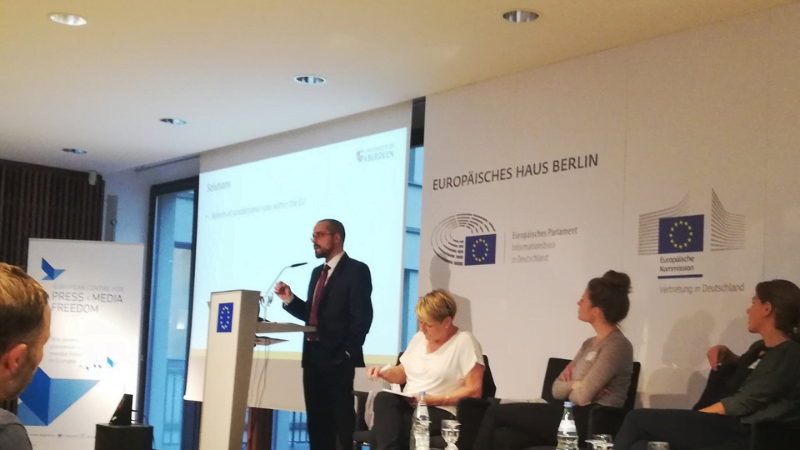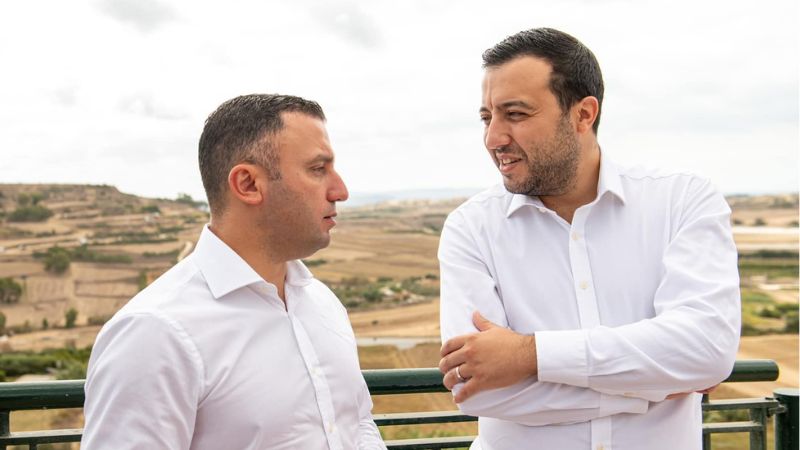Over 25 press freedom organisations have written to the European Commission proposing reforms to the EU defamation law against “vexatious litigation”.
The letter recommends short to medium term measures proposed to the Directorate-General of Justice and Consumers, Pia Lindholm. The author of the report on which the proposals are based is Maltese professor Justin Borg Barthet of Aberdeen University’s law department.
Welcoming the Commission’s commitment to addressing such litigation against journalists, activists and others, the NGOs observed that the inequality of arms facilitates coercive activity which results in the removal of recorded scrutiny, and this results in “a chilling effect on public interest activity going forward”.
“The weaponisation of the law by powerful economic actors has for too long resulted in the suppression of scrutiny and the consequent weakening of the rule of law in the European Union,” it said.
The causes of the current state of affairs are several, the letter explained. These include the existence of criminal defamation law, the abuse of civil lawsuits for libel or protection of one’s reputation, the deficiencies in existing EU private international law, as well as the absence of harmonising measures which would ensure that fundamental rights are upheld in the Member States.
In his research, Borg Barthet argues that the current European Union law enables the abuse of defamation law and consequently weakens the rule of law in the Union. The report states that the laws should be arranged “with urgency”.
The first of the proposal amendment of a regulation which, once amended, would allow cases related to defamation to be grounded in the jurisdiction of the defendant. This would remove the ability for pursuers to abuse their ability to choose a court that have little connection to the dispute, the advice explained.
Another proposes that a directive should be adopted in order to introduce procedural safeguards to limit the availability of SLAPPs against journalists, activists and citizens.
“Examples of good practice in the European Union and elsewhere should be considered in order to establish minimum standards throughout the Union,” it suggested.
The third and fourth requests are for the the inclusion of a new rule which would require the application of the law of the place to which a publication is directed, and for budgetary measures morally and financial support for all SLAPPs victims.
If implemented, such measures would help to “create an enabling environment for a vibrant democracy in the European Union,” the letter said.
The NGO signatories included Article 19, Daphne Caruana Galizia Foundation, European Federation of Journalists (EFJ), Index on Censorship, PEN International, Transparency International and Reporters Without Borders.
Borg Barthet’s research was requested by Article 19, Committee to Protect Journalists (CPJ), European Centre for Press and Media Freedom (ECPMF) Reporters Without Borders (RSF), and PEN International.
Borg Barthet said that he worked closely with the organisations since the assassination of Maltese journalist Daphne Caruana Galizia, who was murdered by a car bomb outside her home in October 2017.
The report said that in the immediate aftermath of Caruana Galizia’s murder, Maltese journalists stood together to declare that they would not be silenced.
“All the while, however, online reports of Caruana Galizia’s journalistic revelations were disappearing from every news portal in Malta… Private international law had been used to suppress press freedoms,” he said.
The author went on to mention Pilatus Bank as an example of a company that used SLAPP lawsuits to silence the Maltese media. “Despite the overwhelmingly Maltese connecting factors, Pilatus Bank engaged a London law firm to threaten to bring legal action for defamation in the United Kingdom and the United States,” Borg Barthet noted.
He said he felt compelled to do something to support Caruana Galizia’s work.
Caruana Galizia had around 40 pending libel cases before she was killed in 2017 that were filed by companies, government officials and individuals, which were described by her son Matthew as a “never-ending type of torture”.
The Shift also faced threats of SLAPP lawsuits from Henley and Partners, a Russian banker and the Croatian behind the White Flag scam demanding that stories be taken down. The Shift was the only news portal in Malta that refused to alter the record by taking stories down. Instead, the threats were published in full.
The report by Borg Barthet noted that the law has on occasion been used as an instrument for the privatisation of government-driven suppression of investigative journalism where members of government shared interests with private sector actors. He offered Henley and Partners as an example when the company’s chief Christian Kalin admitted that it regularly consulted the Maltese government before it took action against specific members of the press.
The report also noted that cases in which defamation law was used to suppress factual reporting generally related to matters of cross-border concern.
The Opposition has presented the second Bill in parliament against SLAPP lawsuits to protect Maltese journalists from cases designed to silence their exposure of corruption. The first proposal was thrown out by then Justice Minister Owen Bonnici under Joseph Muscat’s administration – the companies suing Maltese journalists were linked to scandals involving the government.












